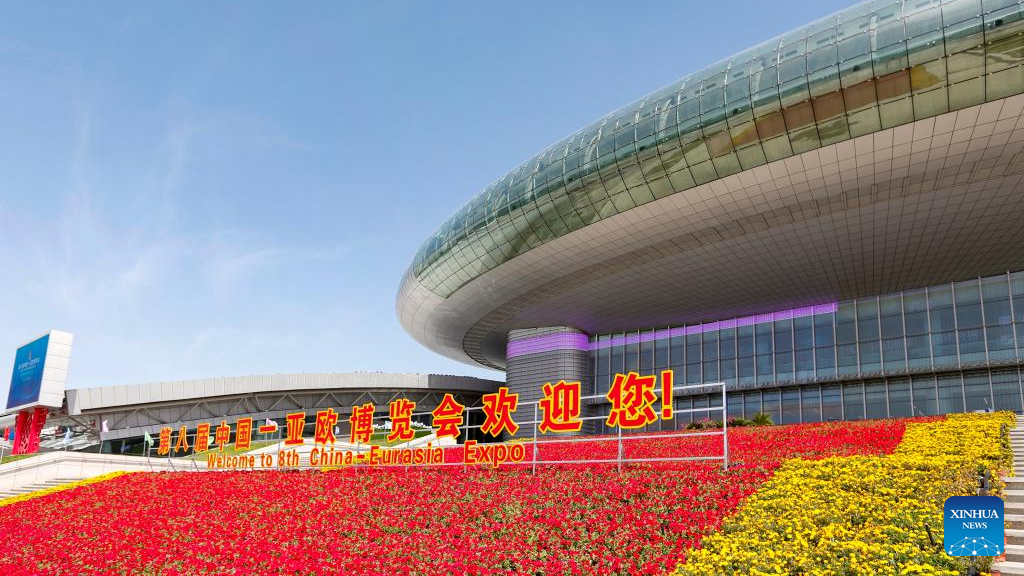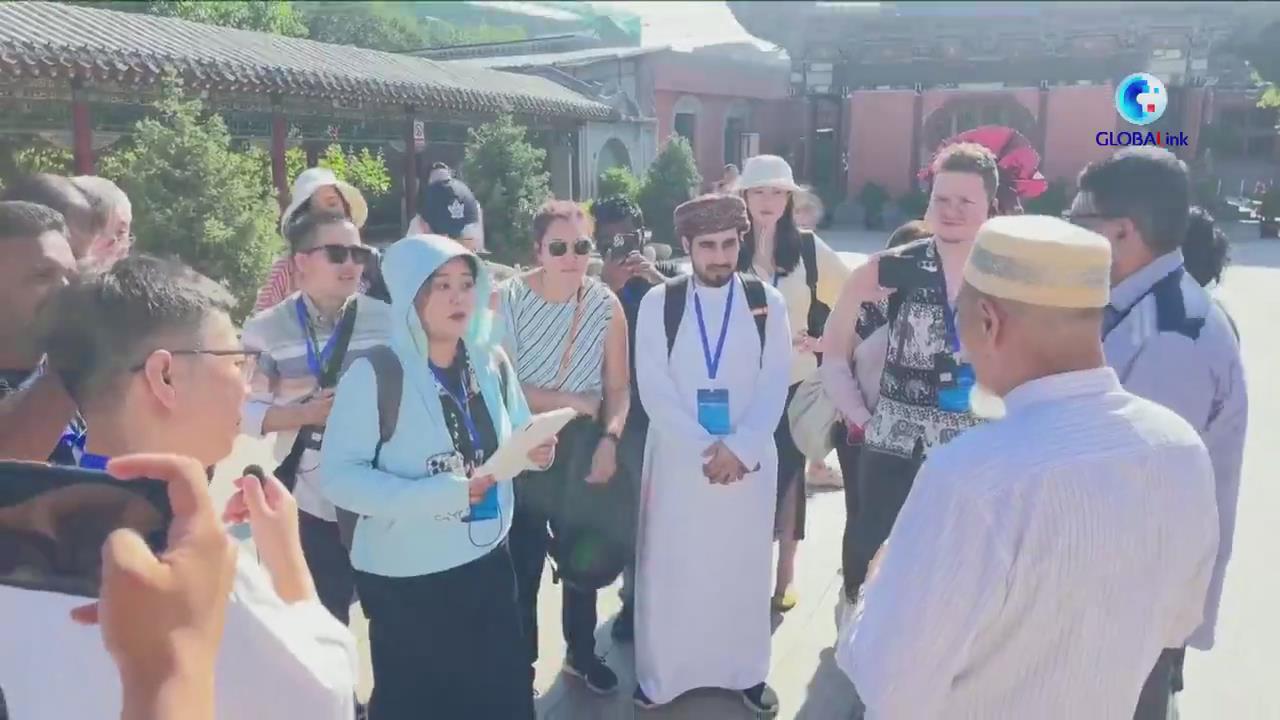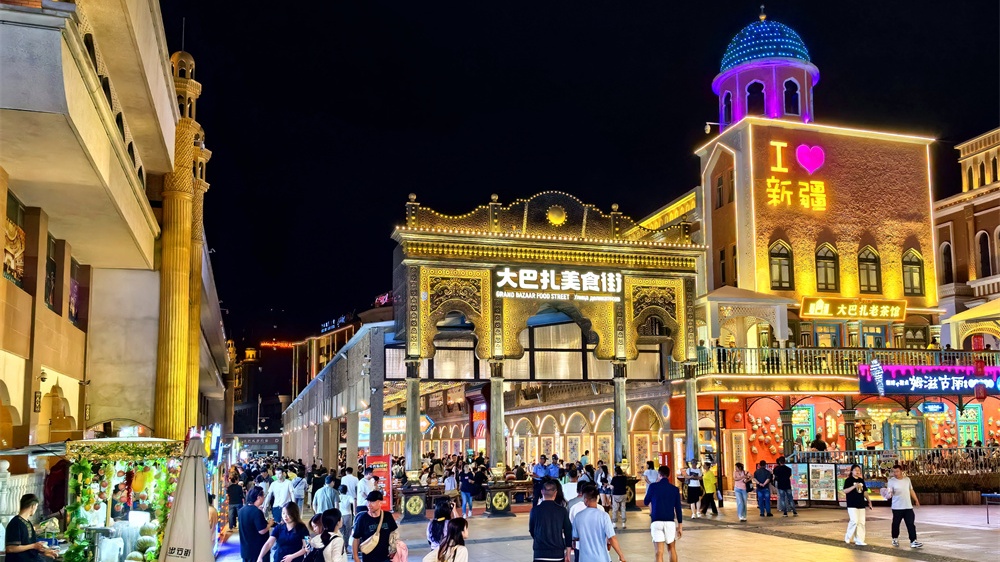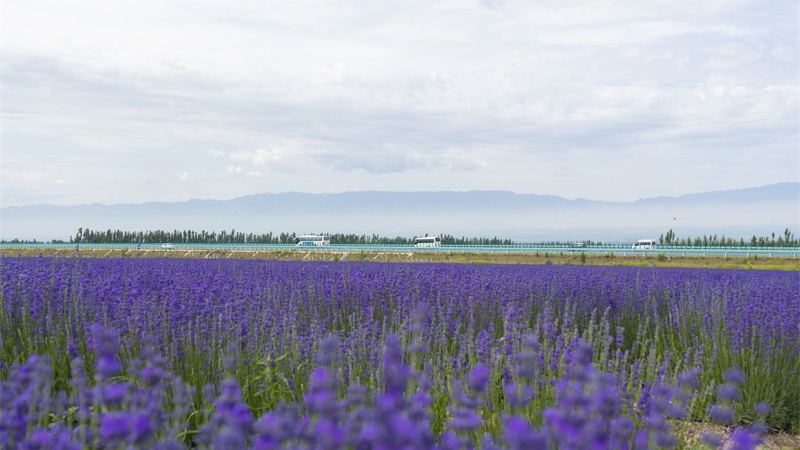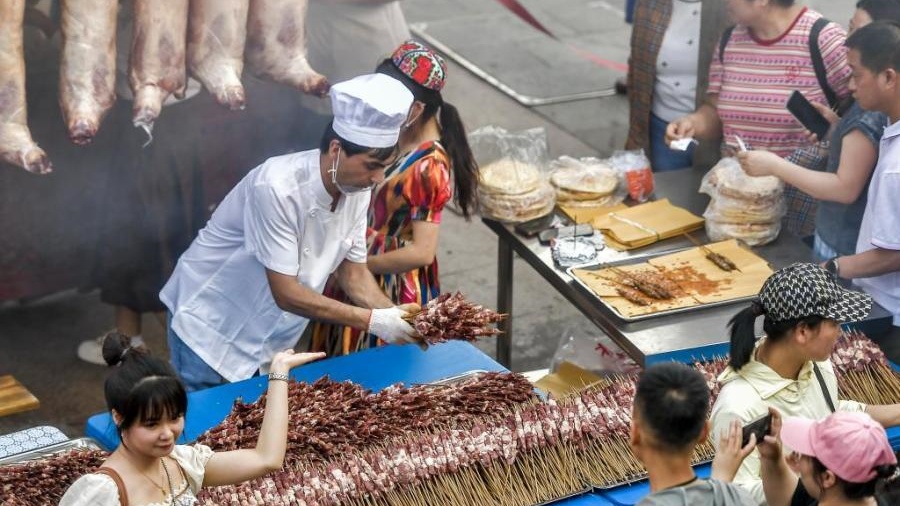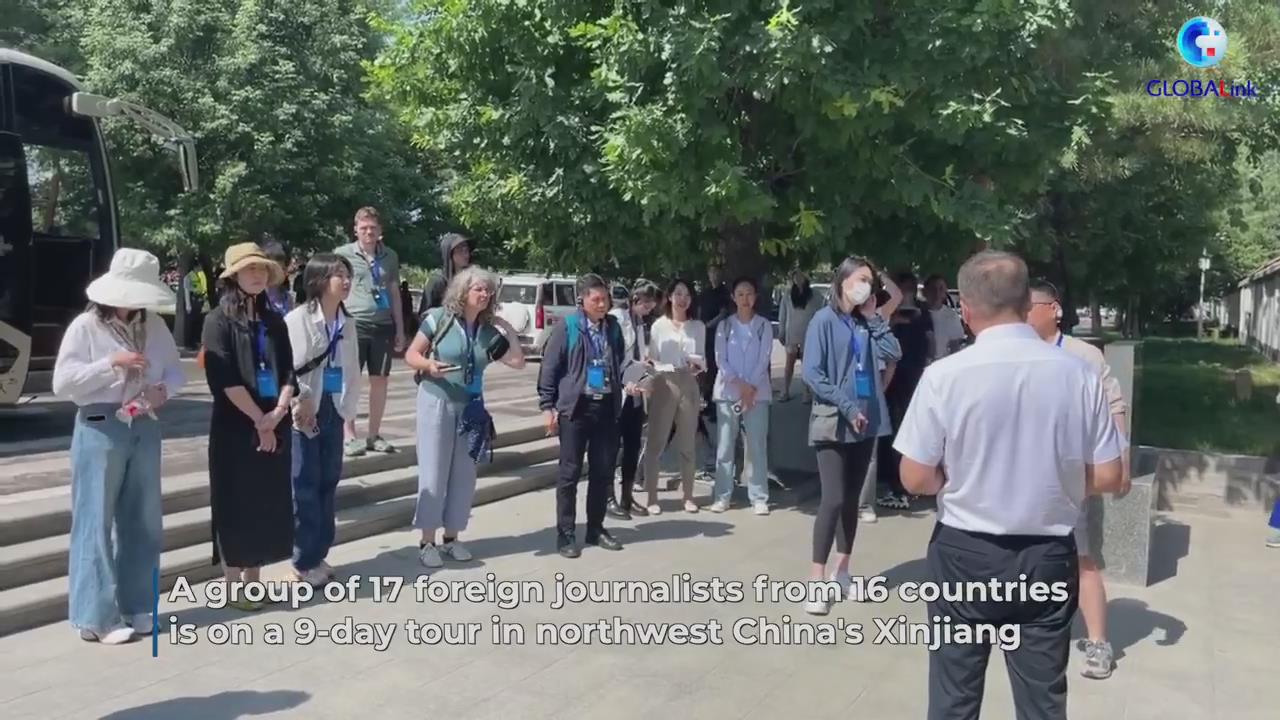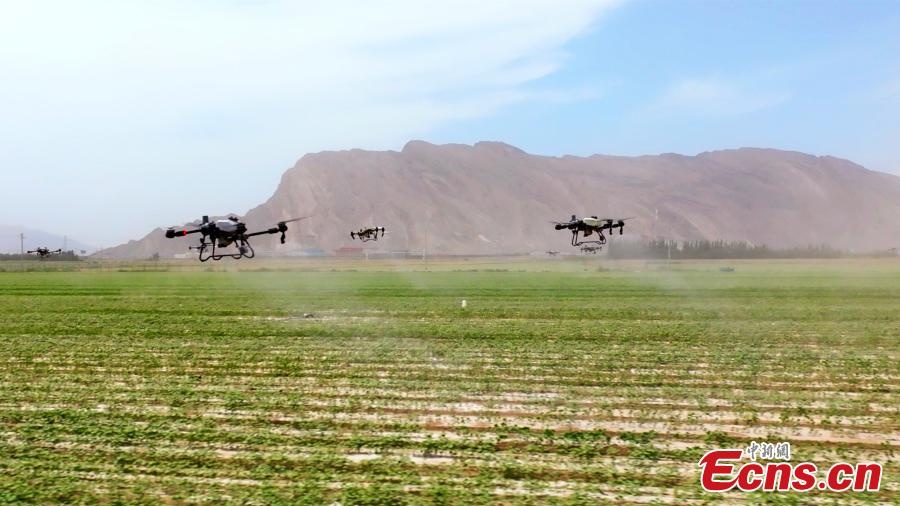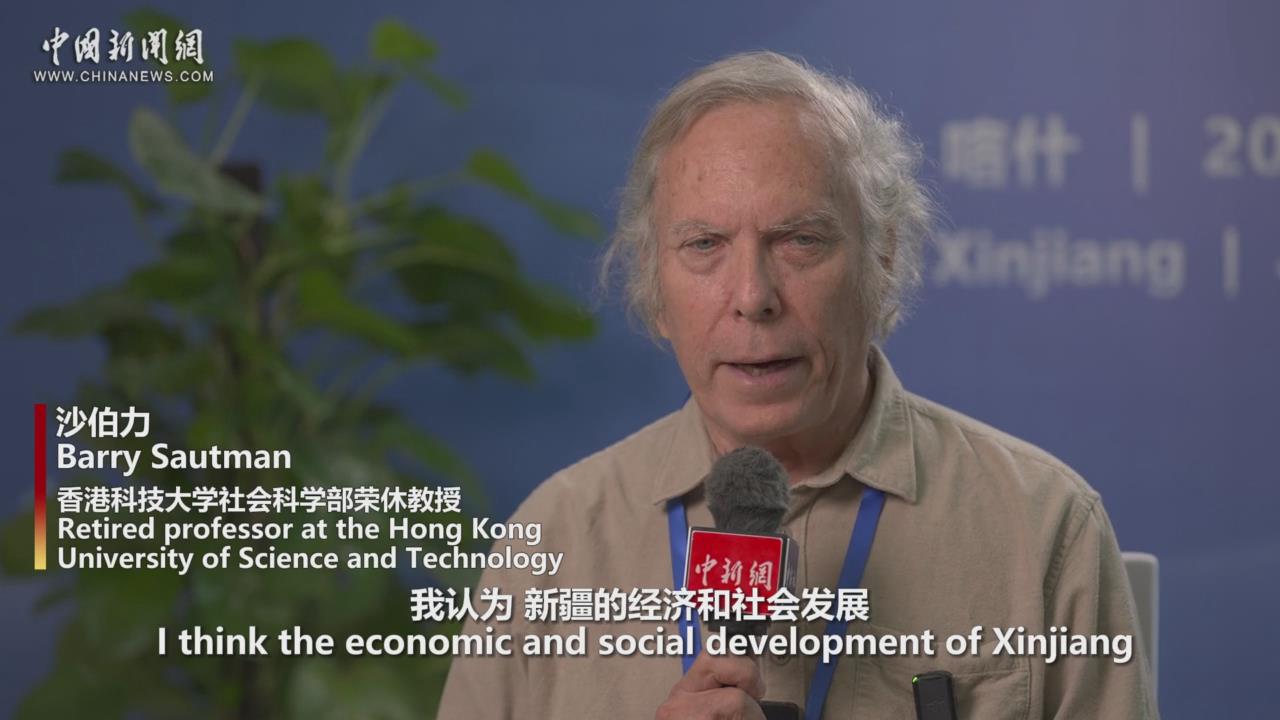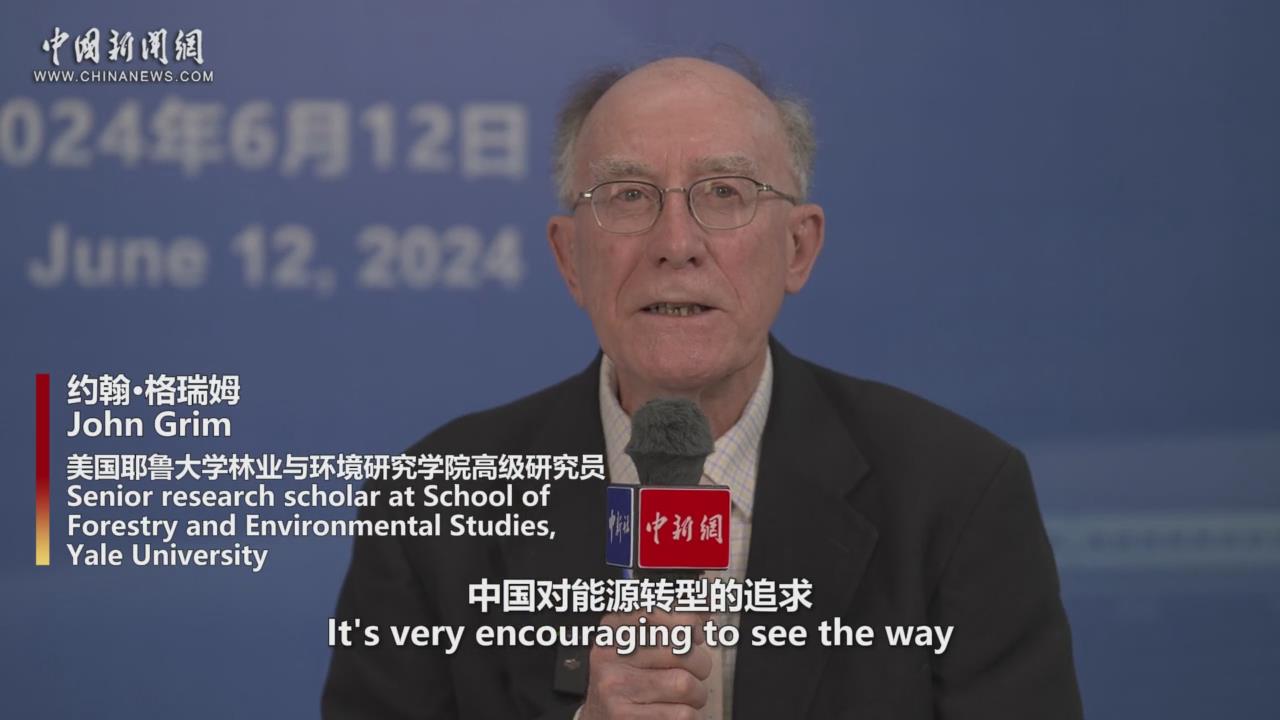
Xu Guixiang: Friends from the Press, good evening. Welcome to the 34th Press Conference on Xinjiang-related issues. My name is Xu Guixiang, the Spokesman of the People's Government of Xinjiang Uygur Autonomous Region. I will chair today's press conference.

As we all know, Ramadan begin on April 13, Muslims of all ethnic groups in Xinjiang are conducting religious activities in a peaceful and harmonious atmosphere in accordance with the Islamic tradition. In order to introduce the situation during Ramadan, today we have live videos about the mosques in several prefectures and invited local religious people and believers to introduce their life during Ramadan.

Those who are presenting in today's press conference are: Mr.Elijan Anayat, Spokesman of the People's Government of Xinjiang Uygur Autonomous Region. We also have Imingjiang Keremu, Imam of the Tuanjie Mosque of Tuanjie Street, Korla; Muhattiremu Seisure, the vice president of Xinjiang Islamic Association and Imam of Yanghang Mosque in Urumqi City; Diliyar Tayil, Imam of Xuanrendun Mosque in Urumqi City; Abdurekfu Tumuniyazi, the president of Xinjiang Islamic Association and president of Xinjiang Islamic Institute; Wubuliaishan Tursunniazi, Khatifu from Jaimai Mosque of Hotan City;Mehmet Akhti, Imam of Restegama Mosque in Aksu City; Ma Jirong, the vice president of the Xinjiang Islamic Association and Imam of Shaanxi Grand Mosque in Yining City; Mehmet Juma, the vice president of the Xinjiang Islamic Association and Imam of the Etigar Mosque in Kashgar. Some believers are also invited to introduce their situation during Ramadan.
Xu Guixiang: First of all, let's take a look at the activities of the Tuanjie Mosque of Tuanjie Street,Korla during Ramadan.
Imingjiang Keremu: Hi, everyone, I am from Tuanjie Street of Kuerle, the Imam of the Tuanjie Mosque. And my name is Imingjiang Keremu. Tuanjie Mosque was first built in 1860, and rebuilt in 1984. It covers an area of 4,036 square meters, and the building area reaches 5,353 square meters. I graduated from College of Xinjiang Islamic Classics. It has been 20 years since I became an imam in this mosque. People come to this mosque for religious activities, including religious believers of Uygur, Hui and Dongxiang.
Since the Ramadan, the worship activities are carried out normally every day. Muslims go in the Mosque in order for worships after temperature measurement. There are also drinks, nangs and other food in the mosque, which has provided great convenience to neighboring Muslims. Besides, doing a good job of cleaning inside and outside the mosque, we also stick to the requirements of epidemic prevention to carry out disinfection seriously so as to a good environment for Muslims to hold religious activities.
Xu Guixiang: Next, let’s take a look at the situation of Yanghang Mosque in Urumqi City during Ramadan.
Muhattiremu Seisure: I am the vice president of Xinjiang Islamic Association and the Imam of the Yanghang Mosque in Urumqi, and I have been the Imam of the Yanghang Mosque for more than 9 years. Yanghang Mosque was built in 1897 with a history of more than 120 years, covering an area of over 5,000 square meters, with the building area reaching more than 3,000 square meters.There are five worships a day, the major worship of the Djumah Day, the Salat al-Jum‘ah of the Djumah Day, and the Salat al—‘Idayn on Ruzi Day and‘Id al-Qurban Festival, the neighboring Muslims of Uygur,Kazak and Hui all come here to worship. What’s more, Muslims from India, Pakistan, Kazakhstan and other countries as well as Muslims studying, doing business and traveling in Xinjiang also come here to do the worship.
Fasting is one of the Five Pillars of Islam. Since the beginning of Ramadan on April 13 this year, we Muslims of all ethnic groups in Xinjiang have been sticking to the traditions of Islam, fasting every morning, and end it in the evening. After the Salat al-‘Isha’, we go to the Mosque for Tarawih. Everyone feels contented. All religious activities were carried out in a peaceful and normal manner.
Xu Guixiang: Then, let’s take a look at the situation of Xuanrendun Mosque in Urumqi City.
Diliyar Tayil: I am Diliyar Tayil, the Imam of the Xuanrendun Mosque in Urumqi. Xuanrendun Mosque, formerly known as Xuanren Dun Second Team Mosque, was built in 1980. In 2017, it relocated to the present site according to the urban planning adjustment and the requirements of the surrounding Muslims. After the relocation, the mosque taking up 3,000 square meters, with an area of 2,349 for building, with a construction area of 1,669 square meters of ancillary facilities, and 40 square meters of facade houses for rent. The first floor is used for weddings, funerals, and other activities. The second floor is the hall of worship, it is spacious and bright, clean and tidy. The public service facilities of the mosque are very good, including water, power, road, gas, communication, radio and television facilities and so on.Medical services, electronic display screens, computers, electric fans or air conditioners, fire fighting facilities, drinking water facilities, purification facilities and flush toilets were equipped here. The Muslims who worship here are very satisfied.
Xu Guixiang: Next, let's take a look at the introduction of Xinjiang Islamic Institute.
Abdurekfu Tumuniyazi: As the president of Xinjiang Islamic Association as well as the president of College of Xinjiang Islamic Classics. College of Xinjiang Islamic Classics was approved by the people's government of the autonomous region in 1982, and then it was approved by the State Bureau of Religious Affairs, the college was built in 1987. A new campus was established in 2017, there is a building area of over 50 thousand square meters. The college is equipped with comprehensive building, library, mosque, sports field, stadium, dormitories, dining hall and other facilities, which is a complete building complex. The courses offered here include Islamic dogmatism, Hadith, Koran reading and other religious knowledge courses. We also set branch schools in Ili, Changji, Urumqi,Turpan, Aksu, Kizilsu,Kashgar, Hotan with 8 branch schools in total. The yearly enrollment is nearly 1,000 students, and we have trained a number of religious staff with high quality. After graduation, the students begin to provide services for religious believers of all ethnic groups, which ensure the healthy and orderly inheritance of Islam.
During Ramadan, the activities of the college are carried out as usual. The canteen of the college prepares food for students before and after the fast. Five worships a day, Tarawih included, are held here as usual. There will be a Salat al—‘Idayn for Ruzi Festival after the Ramadan, the students will have one day-off, and dine together in the dining hall of the college. Teachers and students of all ethnic groups gather here like a family to have a get together and celebrate the festival.
Xu Guixiang: Recently, some medium outside China claimed that "the Chinese government has demolished mosques in Xinjiang" and "Destroy places of worship for Uygur Muslims". Next, I would like to invite Mr.Elijan Anayat to introduce the relevant information.

Elijan Anayat: There is no such thing as the “demolishing the mosques" in Xinjiang. Most of the mosques in Xinjiang were built in the 1980s---1990s or even earlier. Some of these mosques were originally adobe buildings, some were extremely small, and some have become dangerous building. When it comes to wind and rain, religious activities cannot be carried out normally. When earthquakes occur, the mosques pose a serious threat to the safety of Muslims. In addition, the layout of some mosques is not reasonable, and they were inconvenient for the Muslim people to carry out religious activities. In recent years, with the acceleration of urbanization and the implementation of rural revitalization strategy, some local governments according to the appeal and application of local Muslims, combined with the renovation of rundown urban areas, rural living environment improvement and relocation for poverty alleviation work. According to the urban and rural construction planning, government solved the problem of the mosque dangerous house well by the construction, relocation and expansion. Mosques are safer and laid out more reasonably, and are well accepted by religious people and believers. At present, mosques in Xinjiang are fully able to meet the needs of religious believers.
Next, let’s watch a video.
Xu Guixiang: Then, let’s take a look at the situation of having meals and attending the ceremony in Yanghang Mosque in Urumqi City.
Xu Guixiang: Next, let’s take a look at the situation of attending the ceremony in Xuanrendun Mosque in Urumqi City.
Xu Guixiang: Next, let’s take a look at the situation of students attending the ceremony in Xinjiang Islamic Institute
Xu Guixiang: Recently, some medium outside China claimed that "Religious people who are not recognized by the government have been detained in Xinjiang".Next, I would like to invite Mr.Elijan Anayat to introduce the relevant information.
Elijan Anayat: The so-called "religious people in government custody" are not actually Islamic religious staff. They are criminals under the banner of Islam, propagating religious extremism and engaging in separatist, violent terrorist activities. They take advantage of the simple religious feelings of Muslims, spreading extremist ideas, distorting Islamic doctrines and regulations wantonly, denying all secular concepts and achievements of modern civilization, advocating "Jihad martyrdom into heaven", and brutalizing "infidels" and "apostates". Some religious people who believe in the middle way are ostracized, persecuted or even killed by criminals. For example, under the influence of religious extremism, thousands of violent and terrorist cases took place in Xinjiang for a while. It caused a large number of innocent people were killed, even including a group of highly respected Islamic clerics such as Yunus Sidikdamaola and Juma Tayr. These extremists have brought untold sufferings to people of all ethnic groups including Muslims in Xinjiang, and have severely damaged the image of Islam.
China is a country under the rule of law. The government cracks down on all kinds of illegal and criminal activities in accordance with the law, with no exception for the illegal and criminal acts carried out through the use of religion. There has never been any particular religion targeted in the fight against crime. Religious extremism takes the name of Islam, but it's totally against the dogmatism of Islam. It's not Islam, but a cancer that is anti-human, anti-social, anti-civilization and anti-religion. It is fundamentally different from the doctrines advocated by Islam and other religions, such as patriotism, peace, unity, the middle way, tolerance and good deeds. In fact, the fight against religious extremism is meant to protect legitimate religions better. There has been no violent terrorist case in Xinjiang for more than four consecutive years, and people of all ethnic groups firmly support the measures taken by the government.
Xu Guixiang: Next, I would like to invite Wubuliaishan Tursunniazi, Khatifu from Jaimai Mosque of Hotan City to introduce the relevant situation.
Wubuliaishan Tursunniazi: My name is Wubuliaishan Tursunniazi, Khatifu from Jaimai Mosque of Hotan City. Jaimai Mosque was built in 1848, taking up 4,816 square meters, with an area of 2,376 for building complex. In 1997 and 2019, millions of yuan were invested in two renovations. Now, the mosque is spacious and bright, clean and tidy. It is well conditioned, when it's hot, there's air conditioning, and when it's cold, there's heating and hot water.
Since last year, we have made careful efforts to disinfect and ventilate mosques, and guided worshipers to wear masks and take their body temperatures to ensure personal protection in accordance with the guidelines for the prevention and control of the epidemic in places of worship stipulated by the government. Religious activities have been carried out normally.
Xu Guixiang: Next, let's invite Restegama Mosque in Aksu City to introduce the situation of Ramadan.
Mehmet Akhti: Restegama Mosque was built in May, 2017, taking up 5,200 square meters, with an area of 1,400 for building complex. The mosque has facilities for water, power, gas and road. It is well-equipped, and it also has water closet latrine and bathing rooms. It has great facilities and condition has improved a lot. It meets the needs of the religious life of the surrounding Muslims. Our mosque is located by Aksu branch of Xinjiang Islamic Institute, serving the students there for worships and religious practice lessons.
During the Ramadan, Muslims decide whether to fast or not according to their own conditions. People who are sick or traveling do not need to fast. Some of the nearby Muslims worship in mosques and others at homes. My wife also fasts. She prepares meals for me every day. The government respects our beliefs and it is entirely up to us to whether fasts or not.
Xu Guixiang: Then, let's invite Ma Jirong, Imam of Shaanxi Grand Mosque in Yining City to introduce the relevant situation.
Ma Jirong: I’m Ma Jirong, the vice president of the Xinjiang Islamic Association and Imam of Shaanxi Grand Mosque in Yining City; Shaanxi Grand Mosque was built in 1751, taking up 7,300 square meters, with an area of 2,100 for building complex. The mosque is a national key cultural relic protection unit.There is a reading room with more than 2000 volumes of books on religion, history and culture in the mosque. All the time, the Uygur, Kazak, Hui and Dongxiang Muslims from the surrounding area worship together in the temple and live in harmony with each other.
In Xinjiang, the right to freedom of religion and belief is fully guaranteed. Religious Services Facilities have the rights, such as establishing a democratic management organization, running internal affairs, organizing religious activities, receiving donations, managing and using property, and setting up social public welfare undertakings in accordance with law and so on. The legitimate rights and interests of places for religious activities are protected by laws. Islamic clerics have the right to preside over religious activities, religious ceremony and so on. They can also accept donations from society and individuals. Citizens in religious places and citizens sticking to the religious customs in their homes carry out normal religious activities, such as doing worship, fasting and celebrating religious festivals. These activities are all managed by religious groups and citizens themselves which is protected by law. No organization or individual shall interfere.
Xu Guixiang: Next, let's invite Mehmet Juma, Imam of the Etigar Mosque in Kashgar to introduce the relevant situation.
Mehmet Juma: I am the vice president of Xinjiang Islamic Association as well as the Imam of the Etigar Mosque in Kashgar and my name is Maimaiti Juma. The Etigar mosque has a long history, founded in 1468. It has a history of more than 550 years. The mosque covers an area of 25 mu. In June 2001, the mosque was listed as a national key cultural relic protection site.According to the law, the government issued Land Use Certificate, House Property Certificate and Registration Certificate for places of religious activities which has protected the legitimate rights and interests of the mosque.
Over the years, we have received a lot of foreign groups visiting the Etigar Mosque. A few days ago, we also received the Secretary General of the Shanghai Cooperation Organization and more than 30 diplomatic envoys from various countries to China. They visited the spacious and bright worship hall, perfect service facilities and beautiful courtyard. The mosques in Xinjiang have been protected in accordance with the laws, and the Muslim's right to freedom of religious belief is guaranteed, which won everyone’s praise. They all appreciated China's efforts to care for Muslims.
The Xinjiang government also explicitly stipulated that people of all ethnic groups in Xinjiang have a day off for Ruzi Festival. The government will guarantee that various and reasonable prized daily necessities are supplied in the market. Every family will prepare Zazi and oil cakes and other delicacies for the reception of relatives and friends. On Ruzi Festival,Muslims of all ethnic groups will go to the mosque to attend the Salat al—‘Idayn.After that, people will pay visit elders, neighbors and friends to express holiday greetings and deliver best wishes to each other.
Xu Guixiang: Next, please cut to Hotan to see the scene of Muslims attending the ceremony at the Jiamai Mosque in Hotan City.
Xu Guixiang: Then, let's go back to the worship hall of Xinjiang Islamic Institute to see how they are preventing and controlling the epidemic.
Xu Guixiang: Next, let's follow the camera to the scene to see the Aksu Restgama Mosque Muslims attending the ceremony.
Xu Guixiang: Then, let's invite Elijan Anayatt o introduce the situation of Muslims in Xinjiang learning religious knowledge.
Elijan Anayat: There are four main ways for Xinjiang Muslims to learn religious knowledge:
The first is to study in mosques. Through the teaching of Islamic clerics, religious knowledge can be abtained. For example, Islamic religious staff often teaches Muslims the Koran, Hadith and religious rites and so on. They teach Muslims how to perform worship and how to recite scriptures correctly.
The second is to study in a religious college. Xinjiang has 10 Islamic schools now, including the Xinjiang Islamic Institute, eight branches of the Xinjiang Islamic Institute in Yili, Urumqi, Hotan and Kashgar, and the Xinjiang Islamic School of Sutras. The courses offered include religious knowledge, such as Islam dogmatism, Hadith, Koran recitation and Arabic, etc. There are laws courses, such as the Constitution, the Civil Code, the Regulations on Religious Affairs and the Regulations on the Elimination of Radicalization, etc. There are cultural and historical courses, such as Chinese history, Islamic history and culture, computer, and the national standard language and so on. Any Muslim who is willing and qualified can come to study.
The third is to learn by reading religious scriptures. Xinjiang Islamic Steering Committee for Religious Affairs translated and published religious classic books like Koran and "The essence of the hadith of Buhari" in four languages; they are Chinese, Uygur, Kazak and Kirgiz. The Committee also published Collection of Woltz's Speeches,and Handbook of Religious Affairs of Xinjiang Islam for Islamic clerics and Muslims to learn and use.
The fourth is to learn through magazines and websites. The China Islamic Association has a magazine and website for Muslims in China, which provide a platform and channel for Muslims to learn religious knowledge.
Muslims of all ethnic groups in Xinjiang have diversified ways of learning religious knowledge and opening channels, which can fully meet the needs of Muslims in learning religious knowledge.
Xu Guixiang: Next, please continue to connect to Shaanxi Grand Mosque in Yining City, we will take a look at Muslims attending the ceremony.
Xu Guixiang: Next, there are still more than ten minutes left for the time of fainting ceremony in Kashgar. Let's take a look at the video of some local Muslim people eating the food of Ramadan this morning.
Xu Guixiang: Finally, let's take a video link to Etigar Mosque in Kashgar to see the situation of Muslims there attending the ceremony.
Xu Guixiang: Today, we have broadcast the live coverage of mosques in Urumqi, Korla, Hotan, Kashgar, Aksu and Yining, as well as the sites where religious believers participated in religious activities to you. We have also introduced the channels to learn religious knowledge of Muslims in Xinjiang. I hope that through today’s press conference, you can have a better understanding of how Xinjiang respects and protects the freedom of religious belief through today's press conference. This is the end of today's press conference. Thank you!




















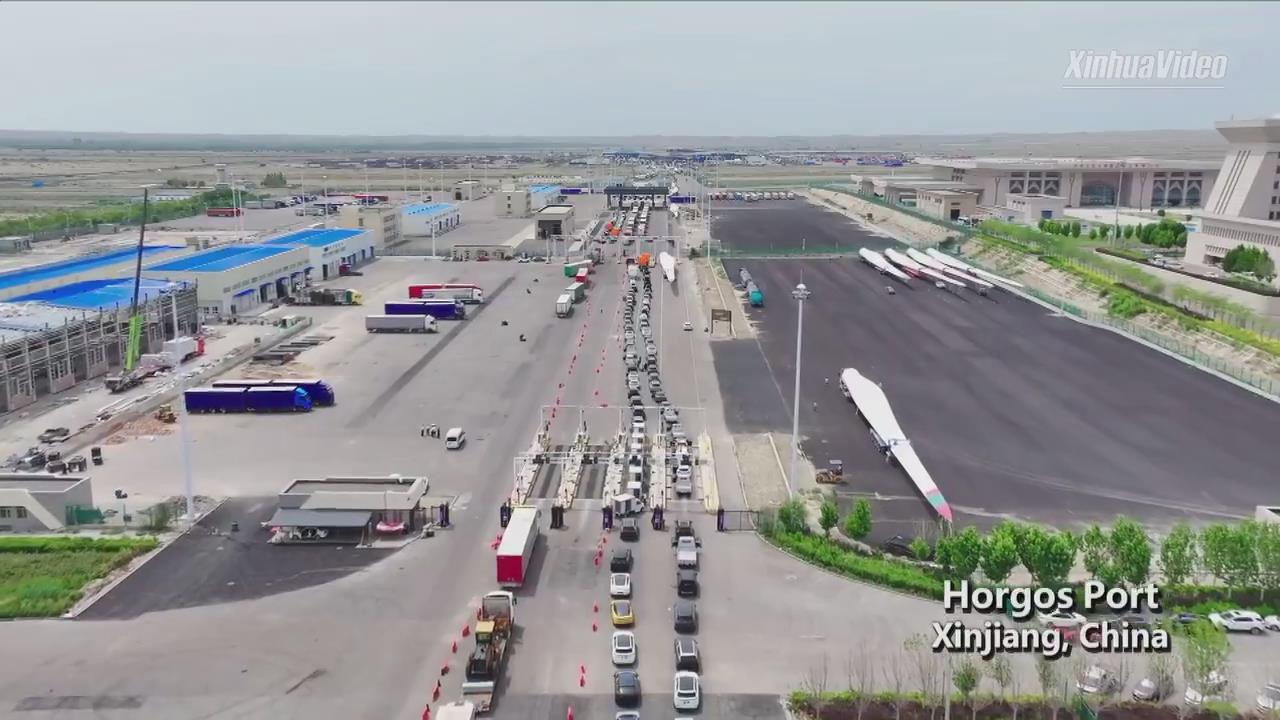




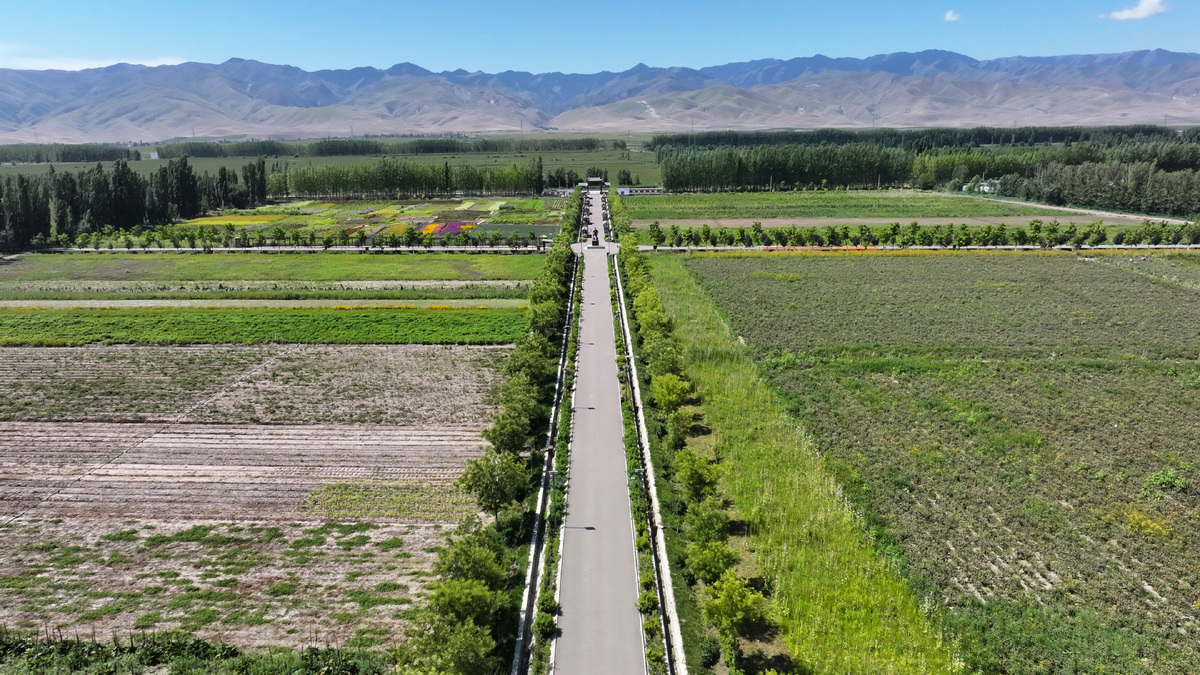

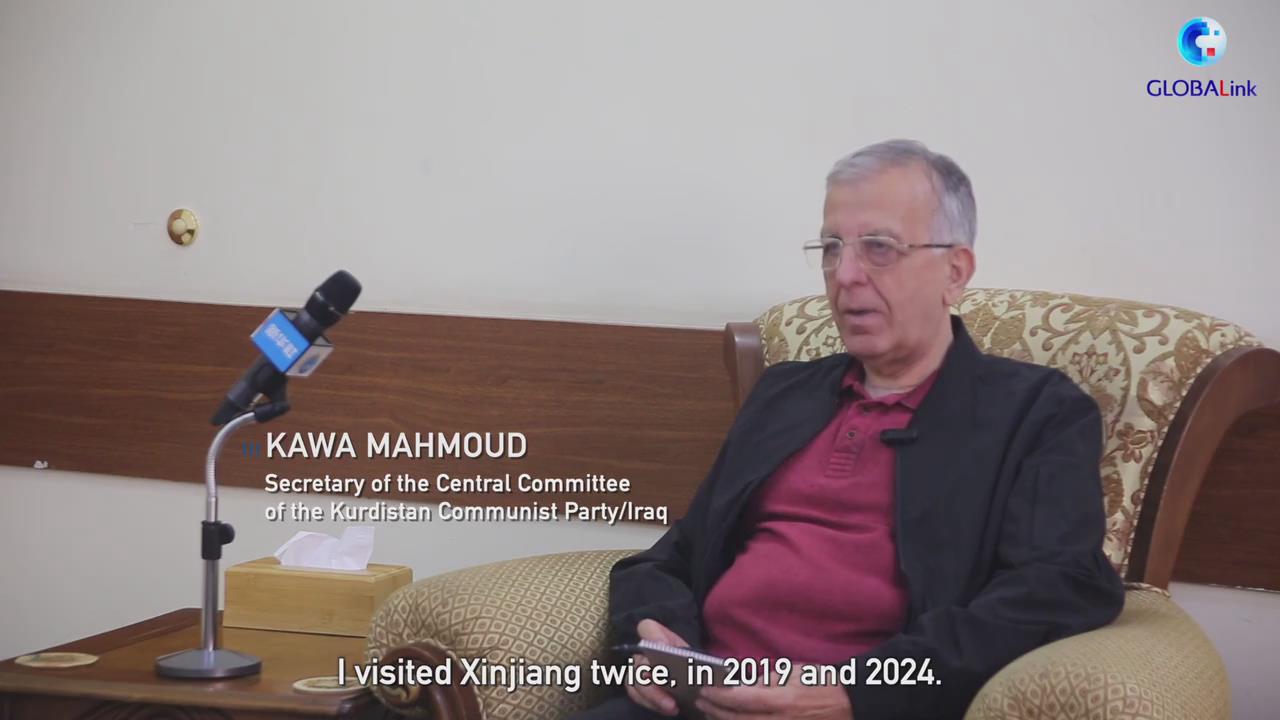

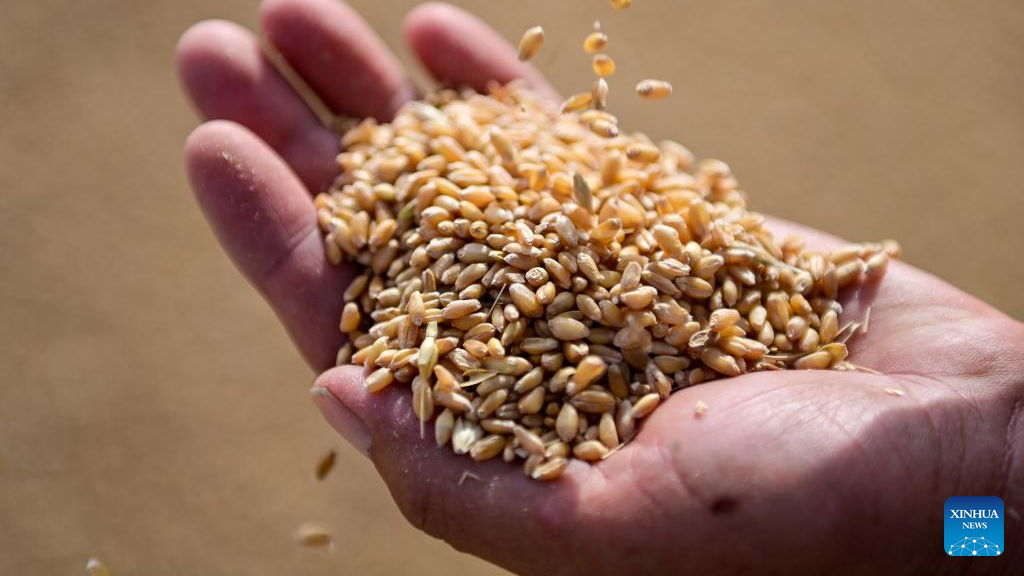
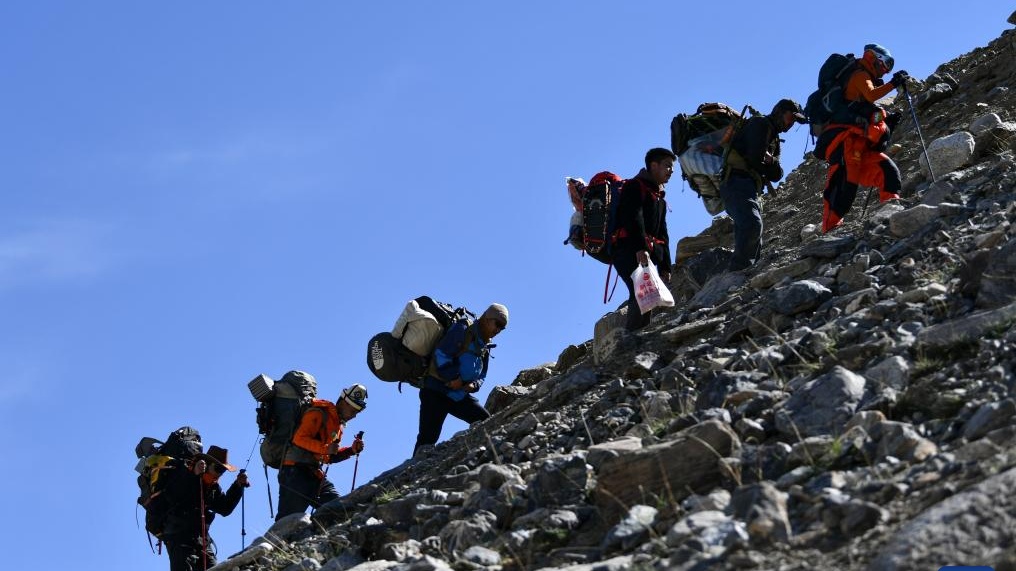



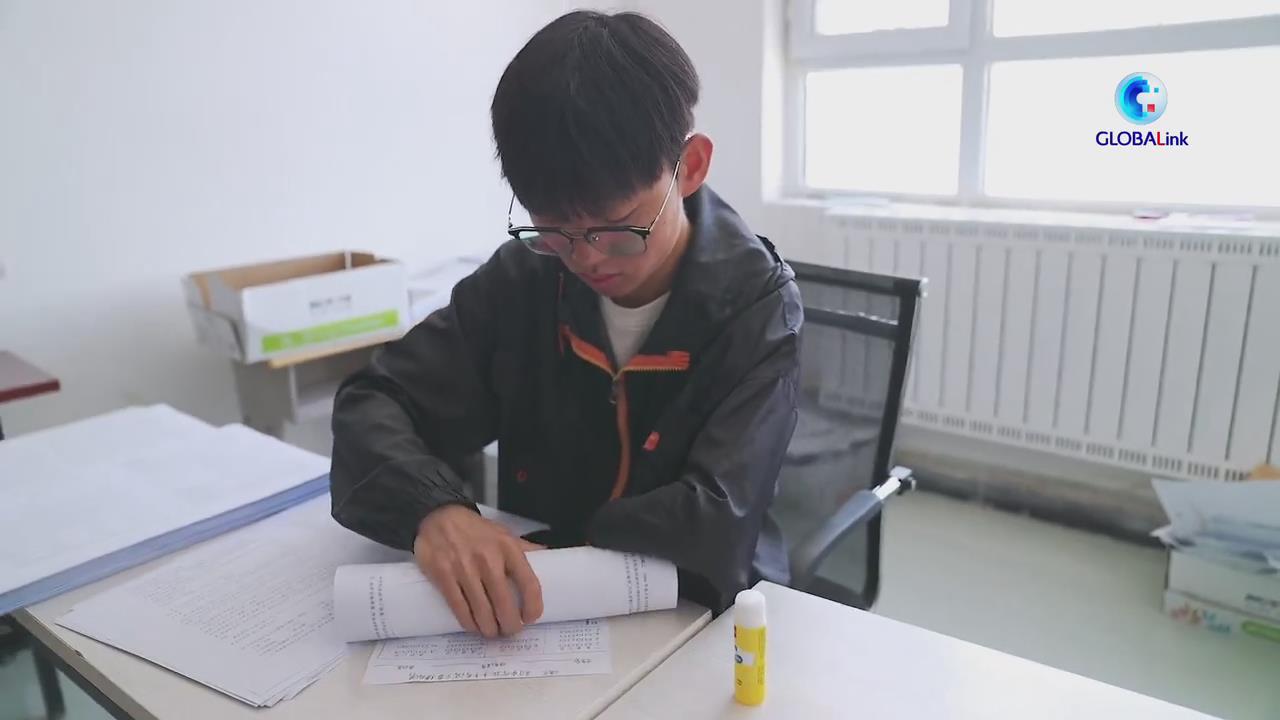





.jpg)

